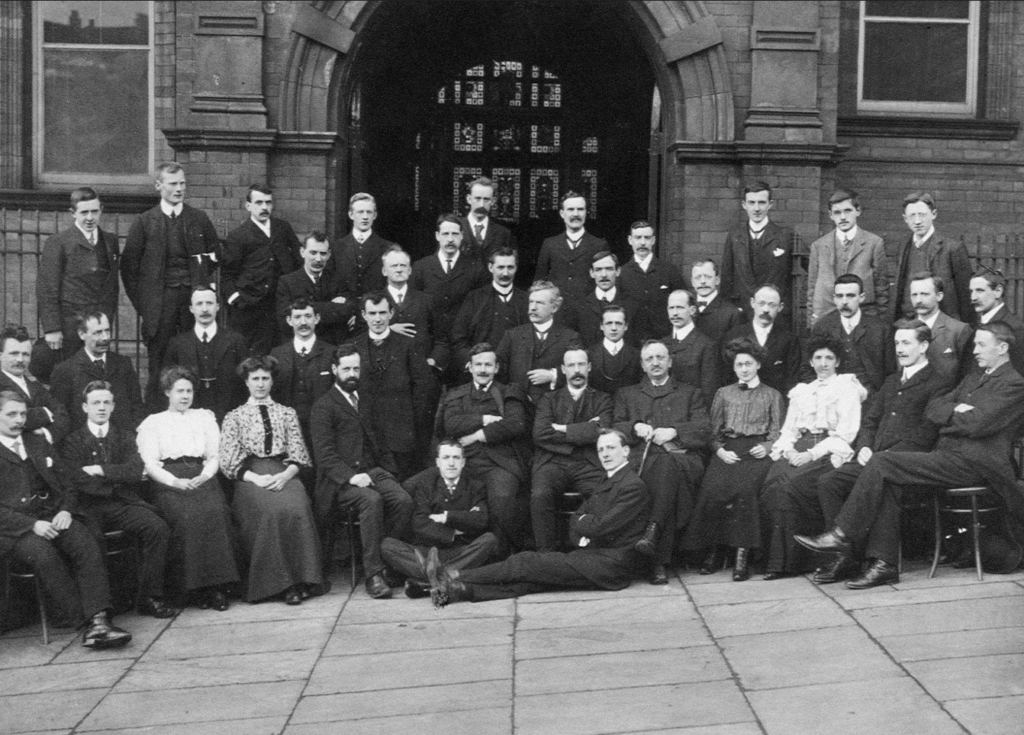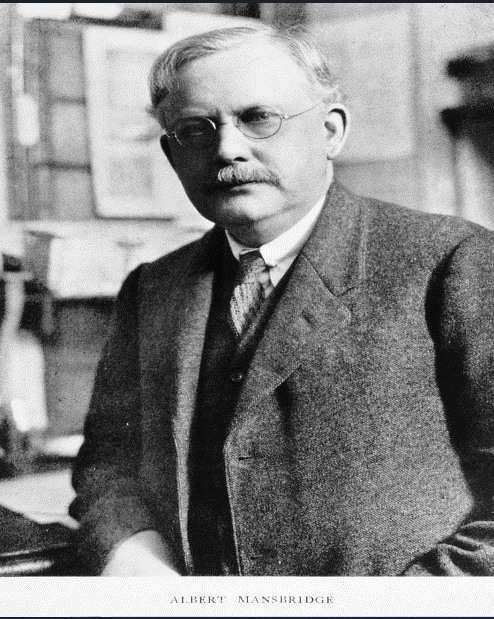The WEA’s Roots in Rochdale

At the beginning of the 20th century, many workingmen and women in Rochdale, as in so many industrial towns across the United Kingdom, were eager to build on the knowledge they had of the world. They wanted to learn, not just about science or literature but about their own industrial experience and their social and political place in it. They wanted higher education and their experiences in organised schooling had given them a taste for it ! But higher education and universities were out of reach.
Soon however their appeals for knowledge were heard, and men of learning from the Co-operative Movement and from the universities came forward to help them with educational courses that met their intellectual, spiritual and political needs. At the forefront of this support rose the Workers Educational Association (the WEA) and its leader Albert Mansbridge but it needed a town and a group of students to carry out its great ‘experiment’ in worker education.
Rochdale was chosen, for its radical history, its network of educational organisations, its nonconformist energies and its commitment to learning. In the Rochdale Education Guild the town had a powerful group of men and women determined to change the face of learning for working people. So in 1908 the town hosted the first WEA tutorial class in the country and recruited one of the great socialist thinkers of the day in R H Tawney to lead, and in the end to be led by, its worker students.

This important but somewhat forgotten story has now been turned into a book by me when I stumbled across a photograph of this first WEA tutorial class of 1908 in the library at Lancaster University and recognised my old school – Rochdale Tech’ – as the venue for this historic experiment. Determined to recover details of this lost but important event, I interviewed relatives of some of the first students, sought out the existing literature and, after conducting extensive research in the archives was able to identify and celebrate individual students, discuss their aspirations, look at what they did for a living and find what some of them went on to become. In the book, not only do I discuss the reason why Rochdale was chosen as the site for this great experiment in worker education but also ask what motivated the first students to join and, following their experiences, how they used their knowledge.
There have been a number of histories of the WEA which mentioned the tutorial classes and specifically Rochdale but I wanted to write one from the point of view of the student-workers by asking – who were they ? what did they do it for ? what did they go on to be ?
My interest is from both an educational and a social inclusion point of view. These working men and women, often factory hands during the day, managed to summon up the energy and intellectual curiosity to study Economic History and Politics both in their free time and in an organised class at the weekend in addition to writing high quality essays for their tutor. The Rochdale WEA tutorial class marks the first of thousands of such classes throughout the UK and worldwide.
The book, entitled ‘Rochdale’s Pioneers of Worker Education : the WEA class of 1908’ tells the story of how the WEA tutorial class came into being through the energies of local people within the Rochdale Educational Guild, discusses the social situation faced by those who came forward for study and looks at who the students were and what they went on to become, some on a national stage such as A P Wadsworth the famous editor of The Guardian. Drawn from the mills and often the poorest neighbourhoods in Rochdale, this first group of students were indeed pioneers of worker education.
Should you be interested in buying a copy of the book Rochdale’s Pioneers of Worker Education : the WEA class of 1908, you will find it on Amazon.com or at CreateSpace online store.